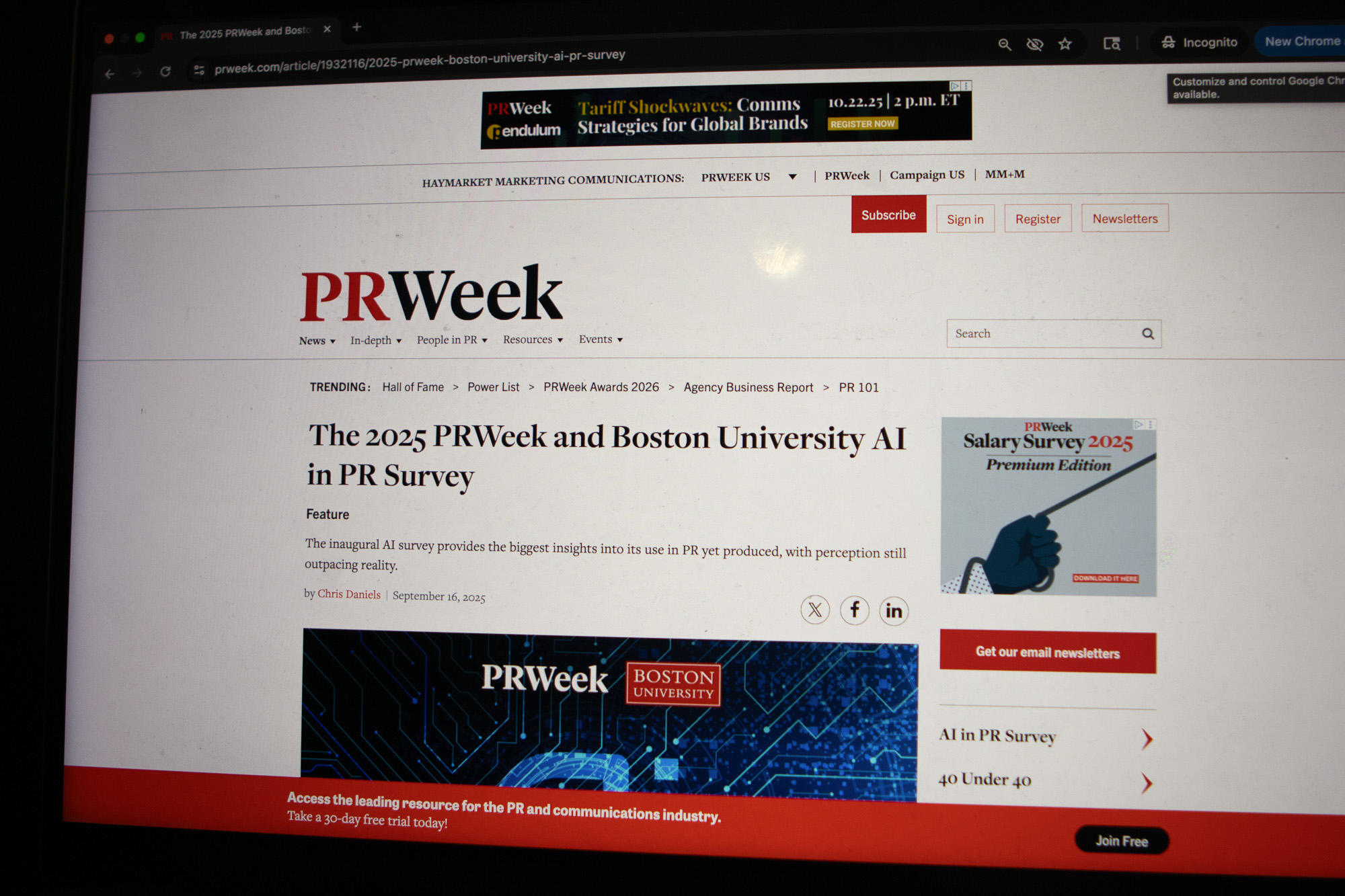A survey released last week by the trade magazine PR Week and Boston University highlights a gap between public relations employers’ receptiveness to artificial intelligence and its use within the PR industry.

Sung-Un Yang, chair of BU’s Department of Mass Communication, Advertising and Public Relations, called the results from the 2025 AI in PR survey a “reputational asset.”
“We formed a team and worked with PR Week,” Yang said. “We believe this is mutually beneficial for educators like us and also professionals.”
The survey collected 719 responses on a five-point scale from both in-house PR teams and agency professionals between February and May.
This research aimed to assess not only AI implementation in PR, but employers’ attitudes towards AI’s role in transforming the industry.
Agency and in-house PR professionals reported their employers as “highly receptive” to AI. However, the same professionals ranked their own use of AI low, according to the survey.
Data shows agencies have made more headway than in-house organizations in using AI to promote productivity, due to the hiring of AI specialists over the past few months. The survey found the top benefits of AI were media monitoring and analyzing large data sets.
However, implementing AI systems into PR agencies is a slow process.
COM assistant professor April Yue, who was a researcher for the survey, said the slower pace of AI adoption in PR agencies is intentional.
“It took [agencies] longer because they want their in-house system, a more trusted system, a more encrypted system,” Yue said.
On the flip side, Yang said in-house organizations’ “readiness in terms of infrastructure policies is limited” compared to the agencies’ levels.
Agencies have worked slowly to incorporate AI into their functions because they’re including employees in the process and are focusing on ethical implications. In-house organizations aren’t operationally set up for AI, resulting in a lack of dedicated resources and leadership support for this innovation, Yang said.
Although practitioners remain open to implementing AI systems to promote efficiency and keep up with technology innovations, Yue expressed concern that AI dependency will reduce critical thinking and creativity.
She cited research from Massachusetts Institute of Technology that showed passive consumption of AI leads to decrease in critical thinking skills.
Overreliance on AI becomes more severe when considering young professionals entering the industry, said Kelley Chunn, COM professor of the practice of public relations.
“For young professionals and for students, critical thinking is a skill that needs to be honed and developed, and if you’re using AI as a crutch, then you’re going to be less likely to develop those critical thinking skills,” Chunn said.
Chunn, founder of the PR and marketing consultancy Kelley Chunn and Associates, warned that a “lack of critical thinking will follow you into your career.”
The survey results showed minimal concerns about AI’s impact on employment opportunities and career advancement.
Nandini Agarwal, a freshman PR major, said she is “excited” about using AI as a tool.
“PR will be such a difficult thing for AI to take over because of the amount of physical interaction required,” Agarwal said.
Looking ahead, Yue said it’s important for the industry to establish ethical rules surrounding AI use.
“[AI] is going to march ahead, regardless of whether we want that or not,” Yue said. “We have to face reality and then think about how we can put up the guardrails surrounding AI.”